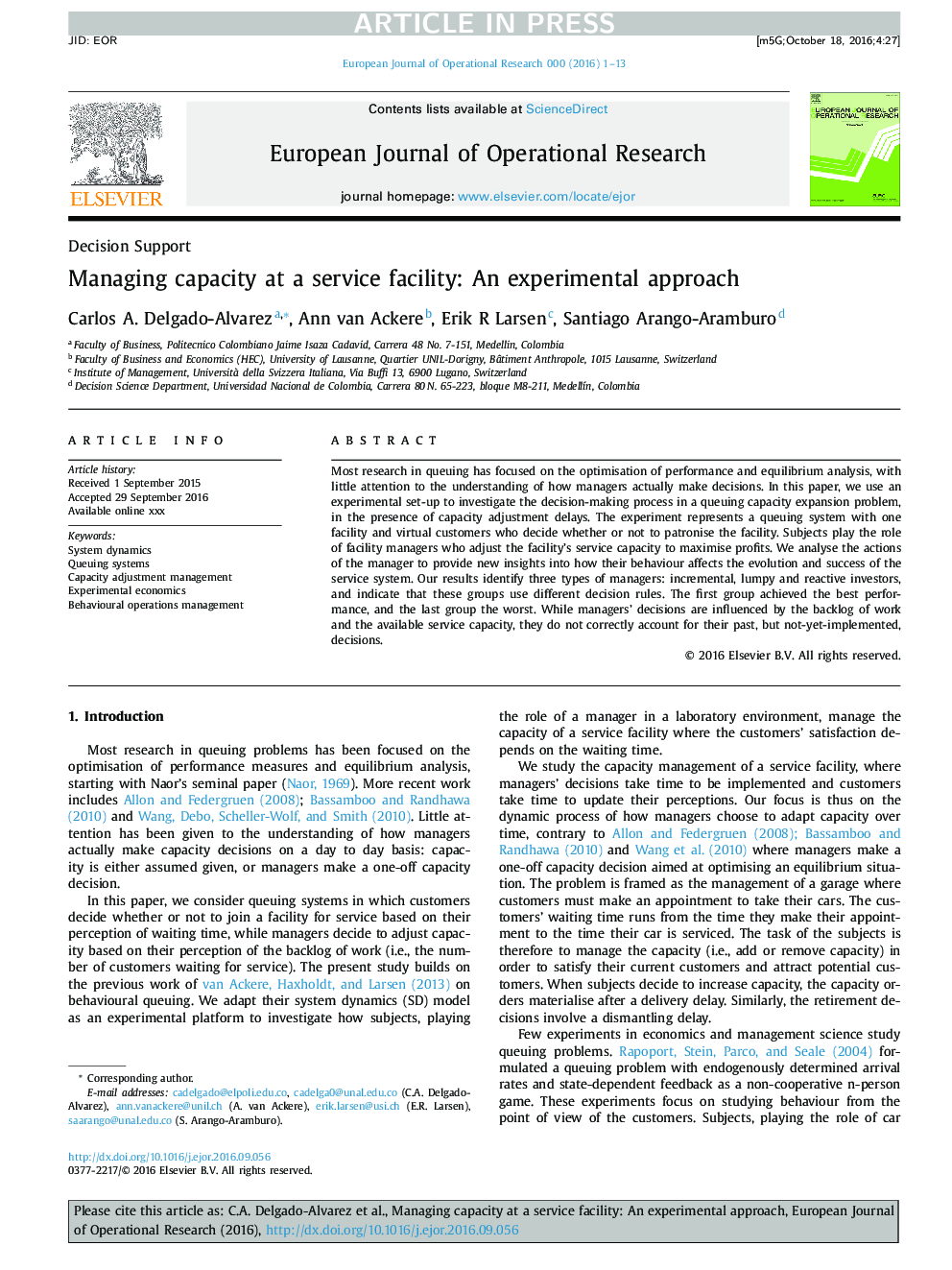| Article ID | Journal | Published Year | Pages | File Type |
|---|---|---|---|---|
| 4959925 | European Journal of Operational Research | 2017 | 13 Pages |
Abstract
Most research in queuing has focused on the optimisation of performance and equilibrium analysis, with little attention to the understanding of how managers actually make decisions. In this paper, we use an experimental set-up to investigate the decision-making process in a queuing capacity expansion problem, in the presence of capacity adjustment delays. The experiment represents a queuing system with one facility and virtual customers who decide whether or not to patronise the facility. Subjects play the role of facility managers who adjust the facility's service capacity to maximise profits. We analyse the actions of the manager to provide new insights into how their behaviour affects the evolution and success of the service system. Our results identify three types of managers: incremental, lumpy and reactive investors, and indicate that these groups use different decision rules. The first group achieved the best performance, and the last group the worst. While managers' decisions are influenced by the backlog of work and the available service capacity, they do not correctly account for their past, but not-yet-implemented, decisions.
Related Topics
Physical Sciences and Engineering
Computer Science
Computer Science (General)
Authors
Carlos A. Delgado-Alvarez, Ann van Ackere, Erik R Larsen, Santiago Arango-Aramburo,
